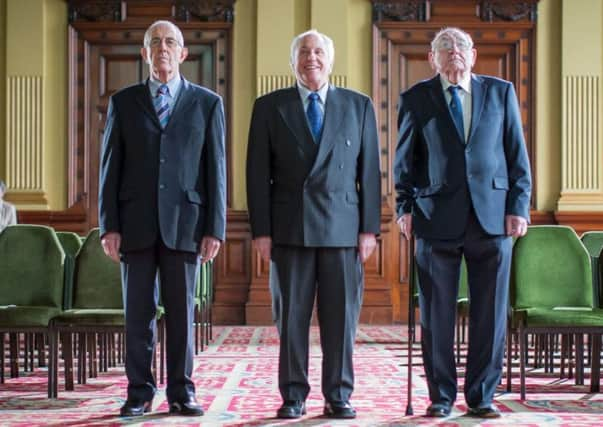Glasgow Film Festival round-up


Spending the first part setting the scene with a mix of archival news clips detailing the CIA-backed overthrow of Salvador Allende’s democratically elected government, Sierra did a good job of quickly establishing the Scottish side of this story by reuniting key players Bob Fulton, Stuart Barrie, Robert Sommerville and John Keenan and making it clear how an act of oppression in a part of the world to which these men had no personal ties was still like “a red rag to a bull”. But it was the way Sierra traced the effect they had had by picking up the story in Chile that gave Nae Paseran its power. Tracking down dissidents, academics and members of the military, the film showed how the actions taken in East Kilbride directly helped ground the Hawker Hunter planes at a time when bureaucratic red tape prevented international governments from helping the people of Chile in their time of need.
If defiance was a key theme in Nae Pasaran, it ended up being necessary trait of the festival itself, which, like the rest of the country, temporarily ground to a halt as the “Beast from the East” covered Glasgow in snow. The bad weather forced the cancellation of a few big events and prevented some guests from arriving while stranding others, like Paddy Considine, in Glasgow for days. But by Thursday afternoon films were up and running and by Friday the full screening programme was back to normal. As it happened, Considine’s film, Journeyman, proved a sentimental favourite, its story quickly transcending its ageing prize-fighter-proving-himself plot to become a more unexpected film about a brain-injured champ (Considine) learning to rebuild his life away from the spotlight. It certainly embraced all the boxing-as-a-metaphor-for-life cliches, but it did so with such sincerity it was hard not to be won over.
Advertisement
Hide AdThere were plenty of other highlights, including a couple of strong debuts in the form of Brit director Michael Pearce’s Beast and French filmmaker Xavier Legrand’s Custody. Both were harrowing stories about dysfunctional families and both took pleasing narrative risks, blending social realism and genre elements to nerve-shredding effect.
Sadly there wasn’t enough shredding of nerves at this year’s FrightFest, which returned for its annual two-day takeover of GFF. Though the best thing is always the collective experience of watching back-to-back horror movies with a dedicated crowd of gorehounds, the films I managed to catch – The Wanderers, Attack of the Bat Monsters, Ravenous, The Devil and the Blacksmith – were all very jokey and campy; the cheers greeting the outlandishness of the kills proving a somewhat unreliable marker of quality.
Outside of FrightFest, one of the most intriguing horror-themed films came from an unexpected source. For Those in Peril director Paul Wright returned with Arcadia, which repurposed rural-themed films from the BFI national archives into a disturbing Wicker Man-inspired cine-essay exploring our dark relationship with the countryside. It was a further sign in the festival that the most interesting Scottish filmmakers were the ones willing to innovate with form. That’s something that was exemplified by Lynne Ramsay, who dominated the festival’s first weekend with her brilliant, abstract New York-set thriller You Were Never Really Here. But fellow Scottish filmmaker May Miles Thomas’s independently made Voyageuse stood out too for its experimental daring. Using the personal archives of her late mother-in-law, Erica Thomas, she constructed a cinematic psychobiography of a woman (Erica is played in the film – via scripted narration – by Sian Phillip) whose life as science-minded Hungarian immigrant in Britain during the Second World War and beyond proved rich in intrigue, tragedy and love.
What emerged was a fascinating portrait of a woman constantly defying the familial, class and patriarchal strictures that made her feel like a constant outsider – and that defiance extended to the way Thomas made it: refusing to kow-tow to dreary cinematic convention and making a film that was all the better for it.